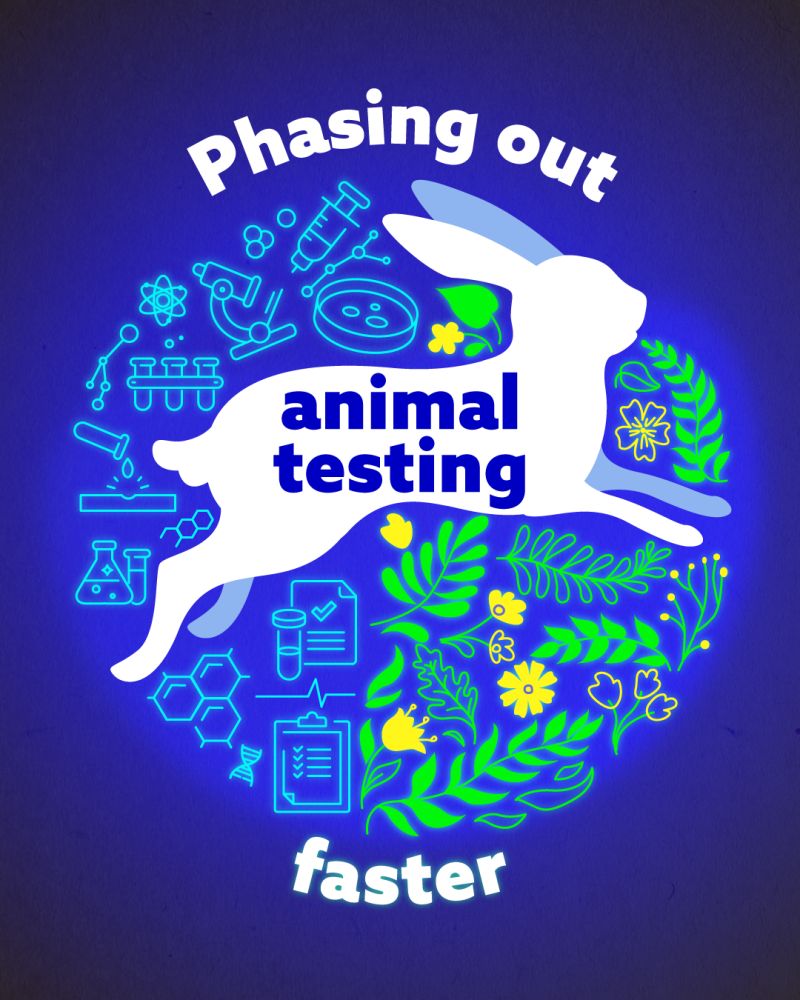 The UK Government has (11.11.2025) published its strategy for “Replacing animals in science”, to deliver on a key pledge from the Labour Party’s election manifesto to set out a clear plan to reduce and ultimately phase out the use of animals in research.
The UK Government has (11.11.2025) published its strategy for “Replacing animals in science”, to deliver on a key pledge from the Labour Party’s election manifesto to set out a clear plan to reduce and ultimately phase out the use of animals in research.
The Alliance for Human Relevant Science welcomes this turning point in government-led promotion of human-relevant science.
The roadmap: a starting point for change
The government’s strategy sets out a framework for how animal experiments will begin to be replaced in the UK. It introduces a tiered model for prioritising which tests can be phased out first, alongside a series of commitments aimed at supporting researchers, funders, and regulators to adopt non-animal methods.
The government describes this strategy as a beginning, with the long-term goal of eliminating animal use in “all but exceptional circumstances.”
A tiered approach to phasing out animal tests
The roadmap groups animal tests into three categories:
- Basket 1: Tests ready for rapid replacement
Includes: pyrogen testing, skin and eye irritation, botox potency tests - Basket 2: Tests needing further development
Includes: forced swim test, fish toxicity, pharmacokinetic studies - Basket 3: Tests with no current validated alternatives,
Includes: fish endocrine disruption tests
Set phase-out targets
The government has committed to specific targets for a number of outdated animal tests, such as:
- Rabbit pyrogen test: to be phased out by the end of 2025
- Botulinum toxin potency testing: to be replaced by 2027
- Forced swim test: no new licences; existing ones expire by 2028
Commitments to support the transition
The strategy also includes a range of supporting actions to help embed non-animal methods across the research system:
- A new UK Centre for the Validation of Alternative Methods (UKCVAM) by 2026
- A £30 million preclinical translational models hub to develop human-relevant models
- ‘Validation Accelerator’ grants to fast-track promising alternatives
- A public dashboard of key performance indicators from 2026
- A restart of the public attitudes survey on animal research
- Foundational training in non-animal methods for early-career researchers
- Support for funders to scrutinise animal use more rigorously in grant decisions
- Regular publication of priority areas for alternative methods
- Encouragement for journal editors to publish studies using non-animal approaches
- Support the upskilling of regulatory assessors and enable engagement between regulators and companies to support the application of non-animal approaches
- A cross-governmental Ministerial group on alternative methods, chaired by the Science Minister
Together, these commitments signal a shift in how the UK approaches animal research, but they also highlight where further ambition is needed. Our Alliance and all partner organisations stand ready to help, encourage and support these actions wherever we can to drive progress and increase its scale and speed.
The entirely new tone from government, recognising that: “The benefits to addressing these barriers are far reaching and go beyond replacing the use of animals… delivering both scientific advancements and a meaningful cultural shift in animal use” is refreshing and wonderful to hear.
Celean Camp, Chair of the Alliance and CEO of Replacing Animal Research, says: “We’ve long argued that the replacement of animals in science cannot be driven without proper consideration and integration of issues around the development, validation and uptake of NAMs. I’m delighted to see the serious efforts around cross departmental working and integration of these areas including in this document. This strategy provides a springboard for UK life sciences to go further, faster, and we look forward to supporting funders, establishments, and researchers to put it into action.”